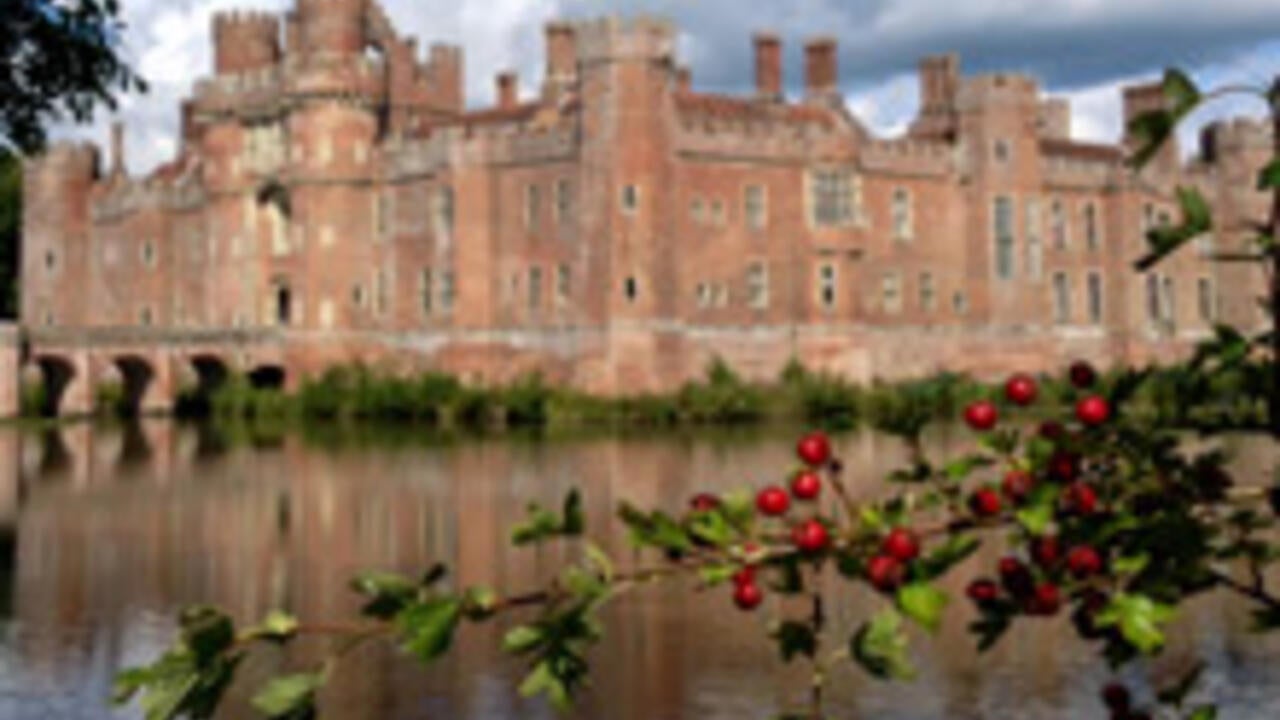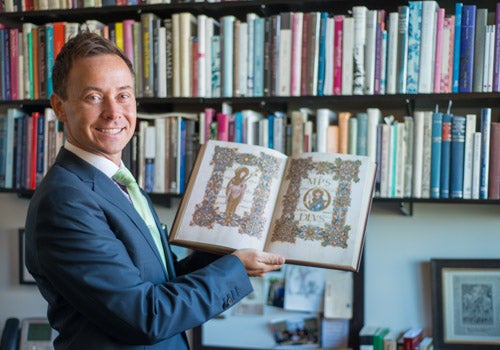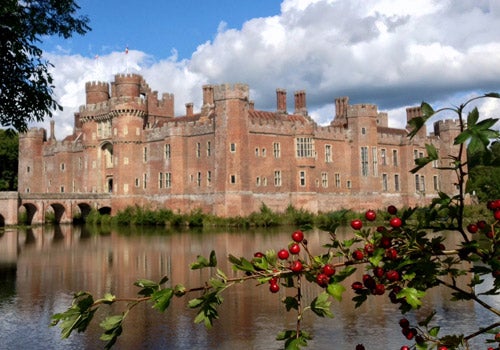
Social historian wins international teaching award
Steven Bednarski wins D2L Innovation Award in Teaching and Learning for his collaborative, cross-disciplinary, hands-on approach to medieval studies

Steven Bednarski wins D2L Innovation Award in Teaching and Learning for his collaborative, cross-disciplinary, hands-on approach to medieval studies
By Wendy Philpott Faculty of Arts
The line between research and teaching is intentionally blurred for Professor Steven Bednarski, whose students are as passionate about scholarship and dissemination as he is.
“I think 18 to 25 years-olds are at their creative peak,” says Bednarski, “The fun part of my job is that I get to tap into that energy.”
His ability to inspire curiosity and facilitate deep learning experiences has just been recognized with a 2017 D2L Innovation Award in Teaching and Learning, presented this week by the Society for Teaching and Learning in Higher Education.
Bednarski, who previously won a University of Waterloo Distinguished Teacher Award, is a social historian of late medieval crime, gender, and natural environment based in St. Jerome’s University at the University of Waterloo, where he also co-directs the Medieval Studies program.
Over the past three years, his students have thrived in collaborative, cross-disciplinary, on-site and hands-on learning experiences at Herstmonceux Castle in East Sussex, UK. Supported by a Social Sciences and Humanities Research Council (SSHRC) grant, Bednarski has funded about 50 fieldwork trips to England since 2014. “For many of the students, it was their first experience of internationalization,” he says.
The primary focus on their work at the castle is archival and archeological research into climate adaption by medieval populations, given the topography around Herstmonceaux represents a microcosm of historical climate change. “When you get undergraduates to think about human responses to change in a far off historical period, they really can see more clearly how we react to nature today, how we shape nature, and how nature in turn shapes who we are as a species,” says Bednarski.

In fact, studying climate change through the lens of medieval history has led many of his students to make other discoveries, which Bednarski is more than happy to encourage them to pursue.
This is the real benefit in sparking students’ interests and letting them explore their own research leads, he says. For example, “We started the project thinking we had little written documents of the earliest castle history, but through persistent archival research by two students, we uncovered quite a lot of data to work with.” Another student discovered the curious history of an illegitimate royal princess exiled to the castle, and this began a new research study into the site’s gendered spaces.
For many of Bednarski’s students, the Herstmonceaux experience ignited a desire to expand on their learning with creative dissemination. That resulted in an innovative student-run lab in St. Jerome’s known as the Medieval Digital Research Arts for Graphical and Environmental Networks (DRAGEN) Lab.
“When we were planning the lab, I said: 'Okay, let’s say you have a $10K or $15K budget. What equipment would you want to have? What skills do you want to develop?' ” The students researched and budgeted for items like the lab’s 3D printer, gaming software, and digital wall – technologies that they wanted to learn to use.
“Students are great for moving things along and finding new approaches for doing things that I wouldn’t have thought of. That’s how I benefit and learn from them”
Undergraduate and graduate participation in Bednarski’s research really began with the Poisoner book project, which Bednarski describes as written “in the style of a gripping detective novel, yet grounded in rigorous academic research.” A Poisoned Past: The Life and Times of Margarida de Portu, a Fourteenth-Century Accused Poisoner is exemplary of microhistory – the study of an unusual historical “moment” or event related to ordinary people, in order to shine light on broader social contexts.
For the book, students helped to bring detailed medieval court documents to life by testing scenarios and perspectives through role-play and debates. Bednarski encouraged them to retell the complex narrative in simple and engaging language. Some of the students who study Latin helped with translation. One student created medieval-style illuminated drawings for the book. Another worked on the index.
“I lifted this idea blatantly from the sciences: where they work collaboratively in labs and write papers together,” says Bednarski. “You get this rich collaboration that’s also training the next generation.” The benefit of involving undergraduates in dissemination, he adds, is that they are not yet entrenched in academic language, making the research more accessible for a wider audience.
A “huge asset” in his work, says Bednarski, is having students with one foot in Arts and the other in another faculty, making their history projects more interdisciplinary. “I want history students to take courses in other faculties and bring their knowledge and skills back to our work.” And they do: students who run the DRAGEN Lab combine medieval studies with majors in environment or math, for example. Former students have gone on to become digital librarians, teachers who design educational video games, public servants, writers, editors, and academics.

Read more
New executive program with Waterloo Region Health Network helps health care executives navigate ongoing AI transformation

Read more
Researchers awarded funding to investigate ecology, climate change, repatriation, health and well-being through cultural and historical lens

Read more
Professor launches Canada’s first large-scale VR use in the classroom, embracing emerging technology and driving the future of education
The University of Waterloo acknowledges that much of our work takes place on the traditional territory of the Neutral, Anishinaabeg, and Haudenosaunee peoples. Our main campus is situated on the Haldimand Tract, the land granted to the Six Nations that includes six miles on each side of the Grand River. Our active work toward reconciliation takes place across our campuses through research, learning, teaching, and community building, and is co-ordinated within the Office of Indigenous Relations.